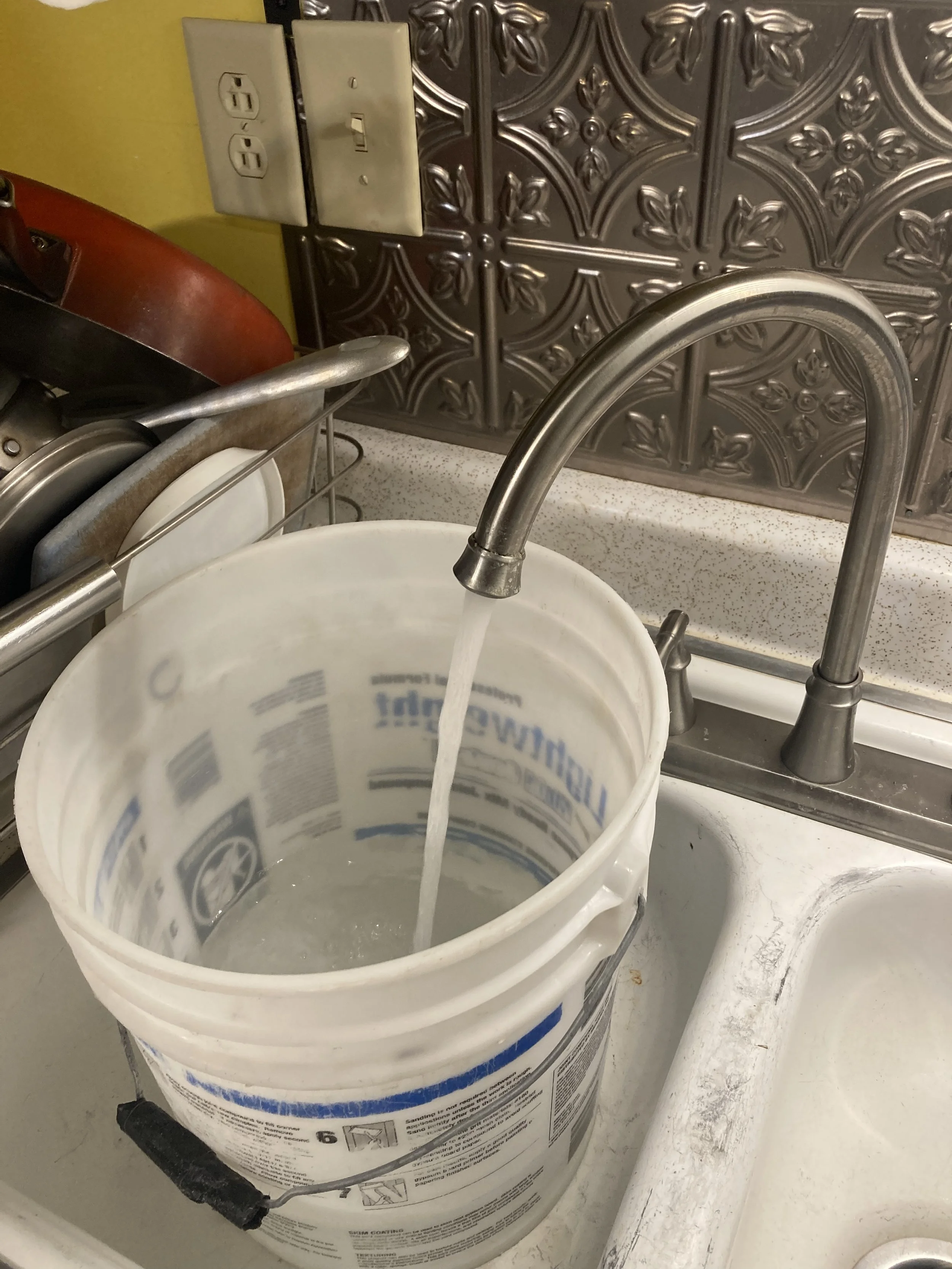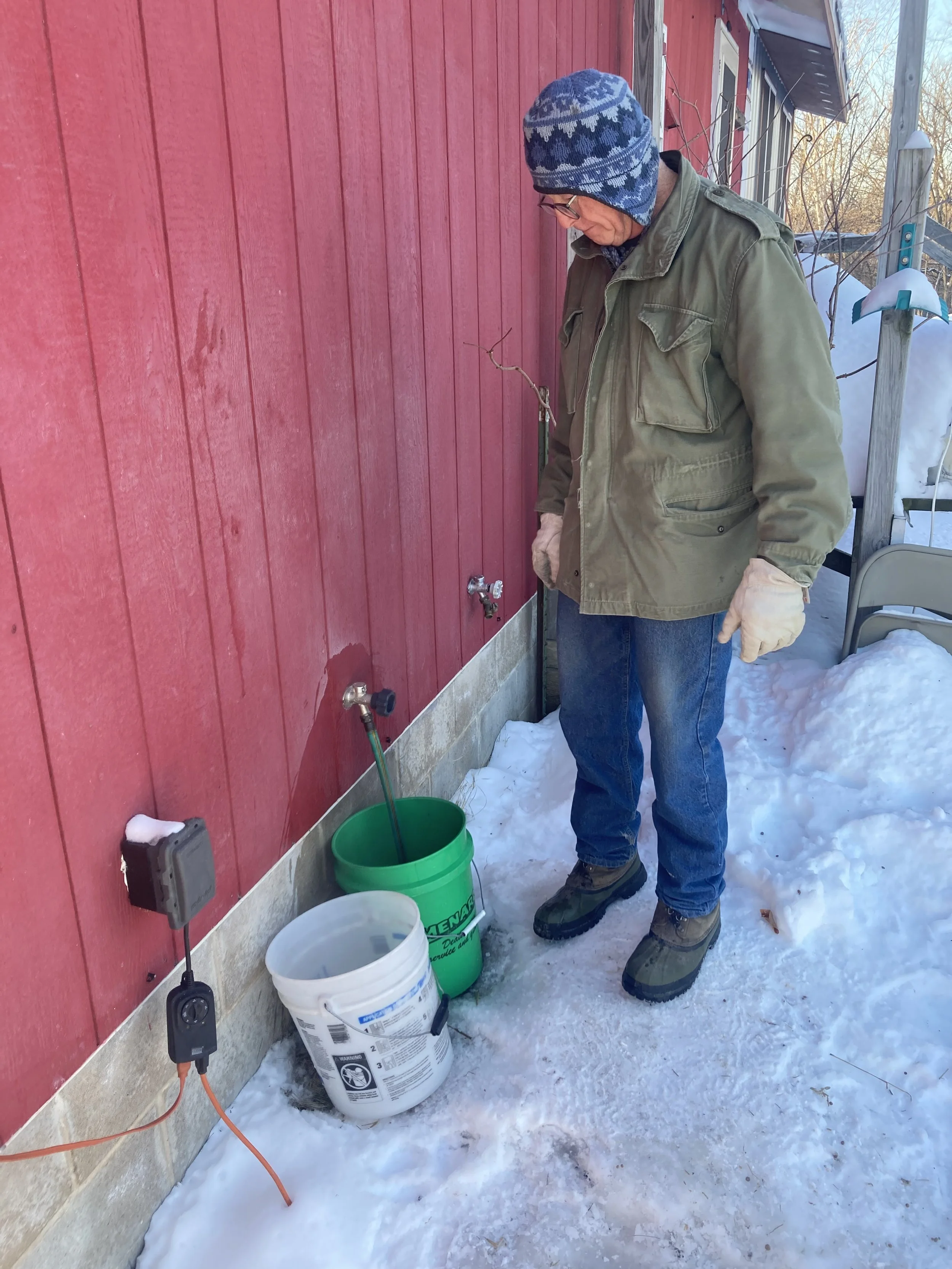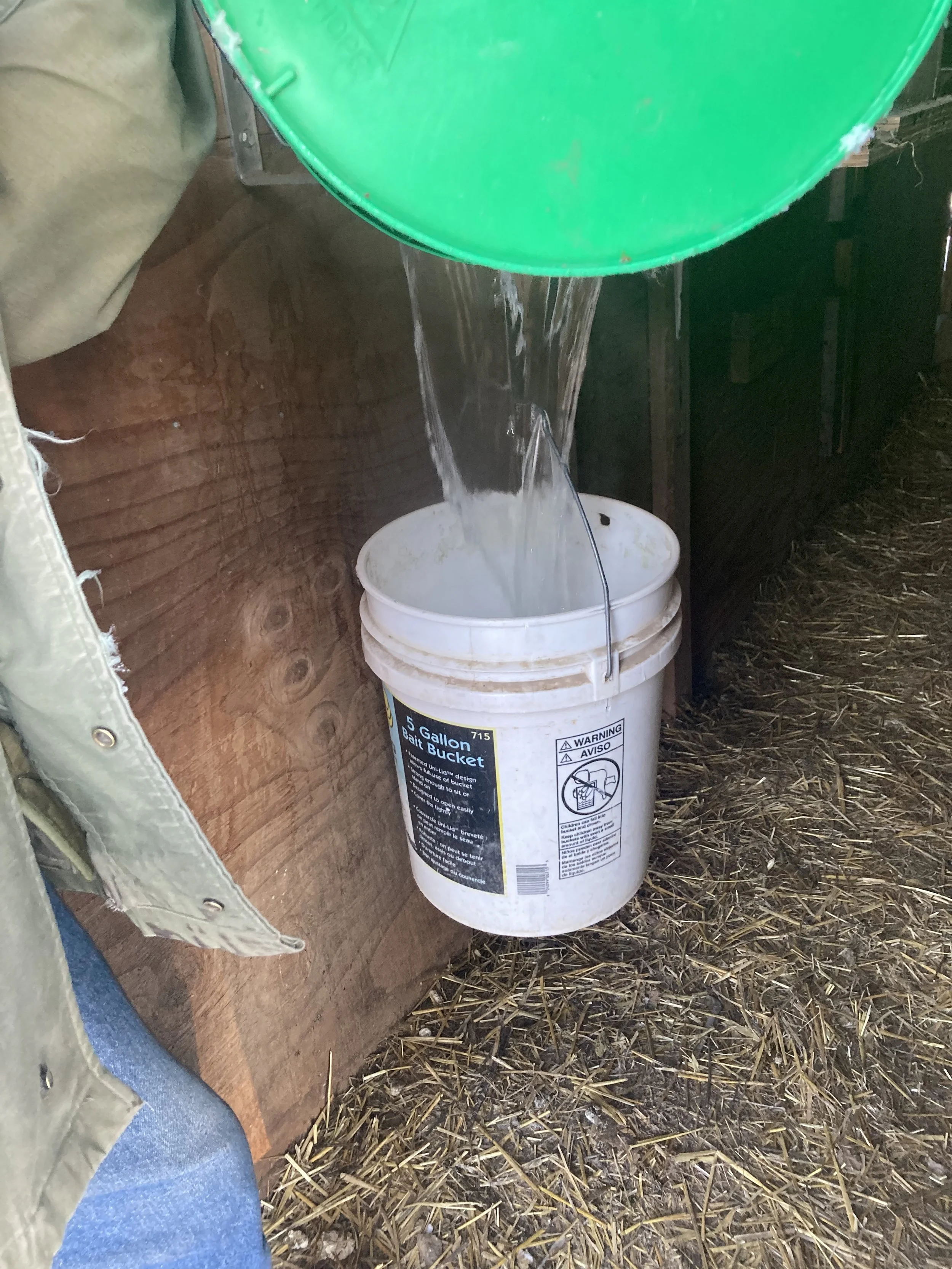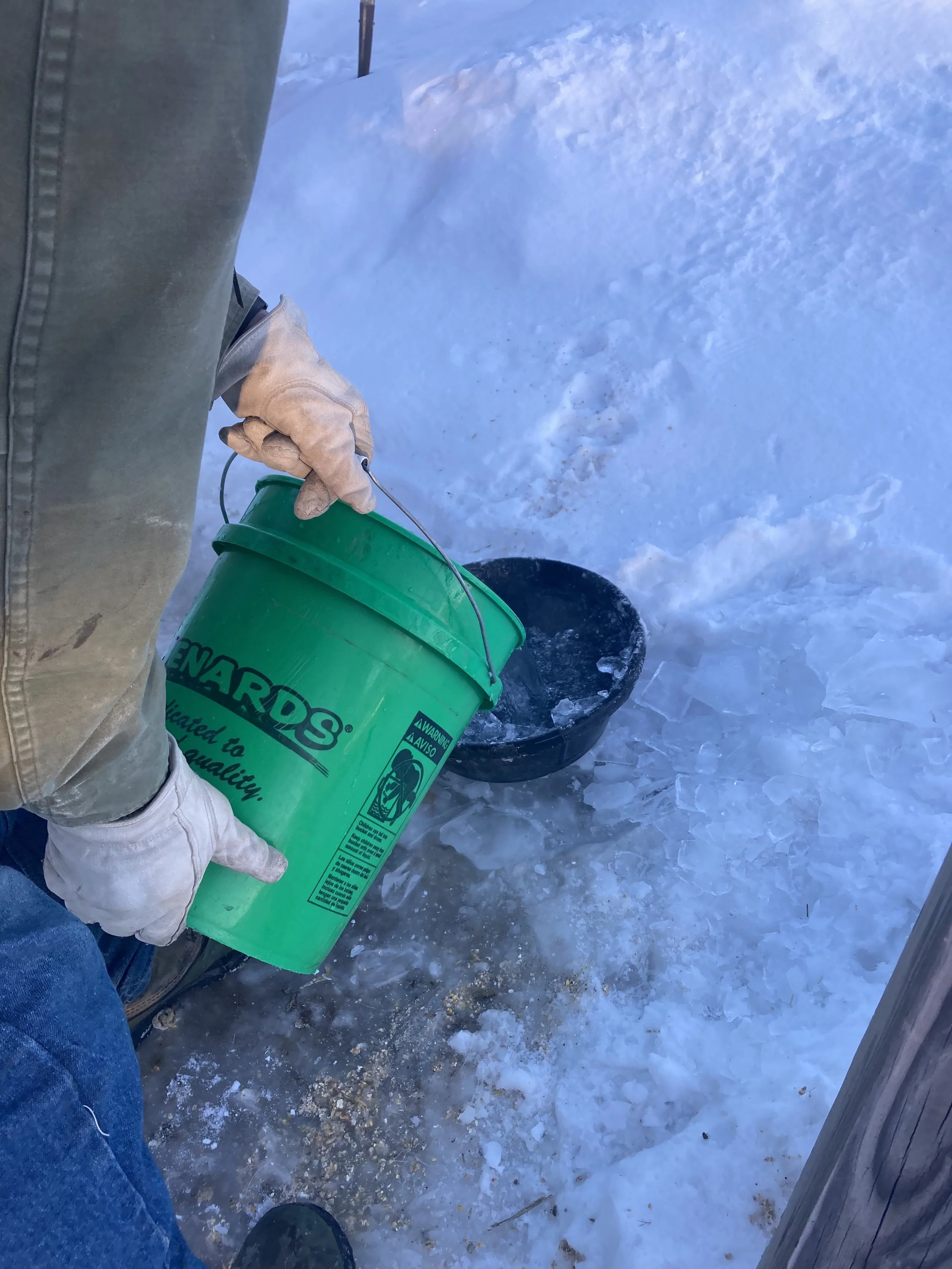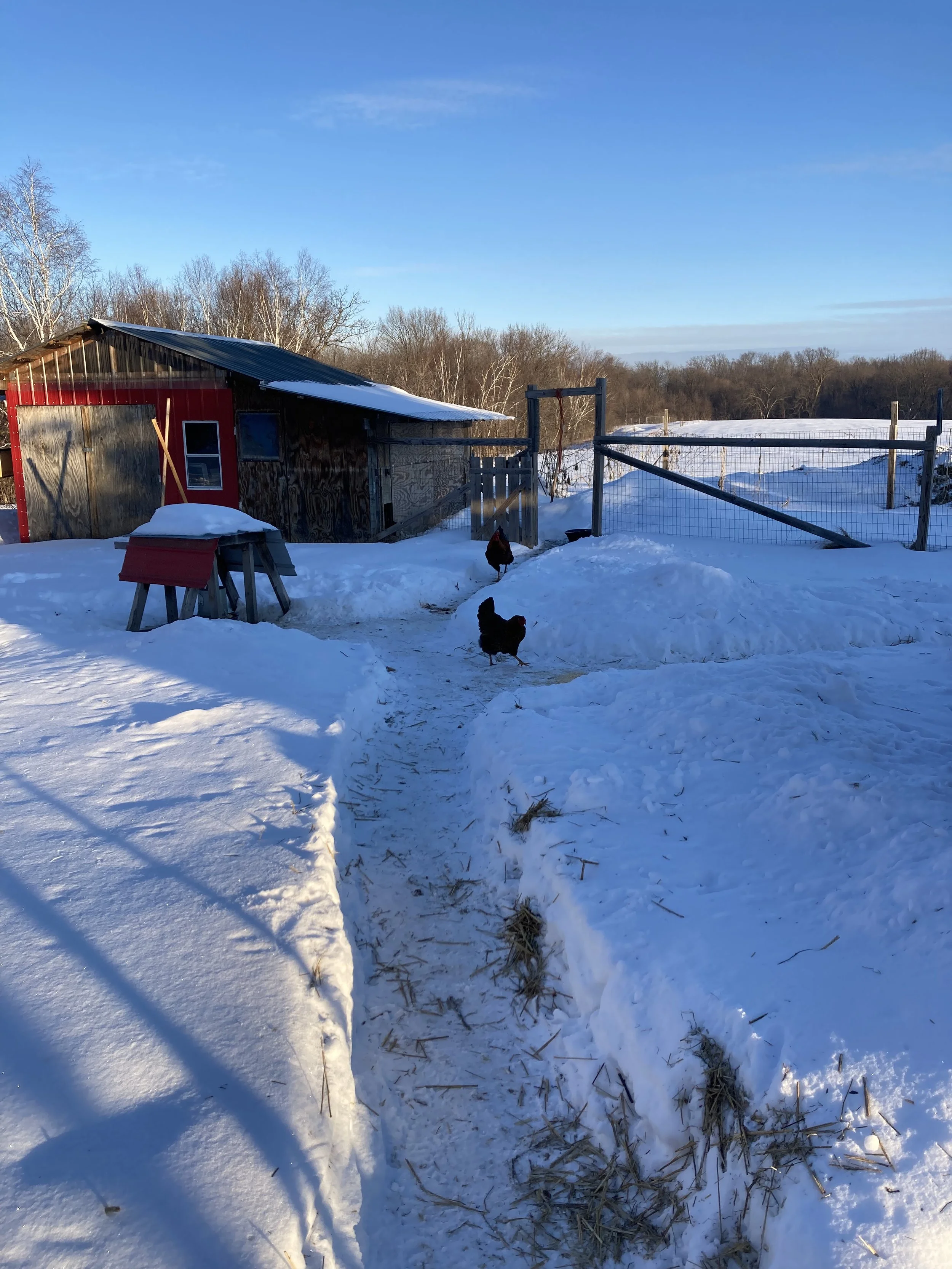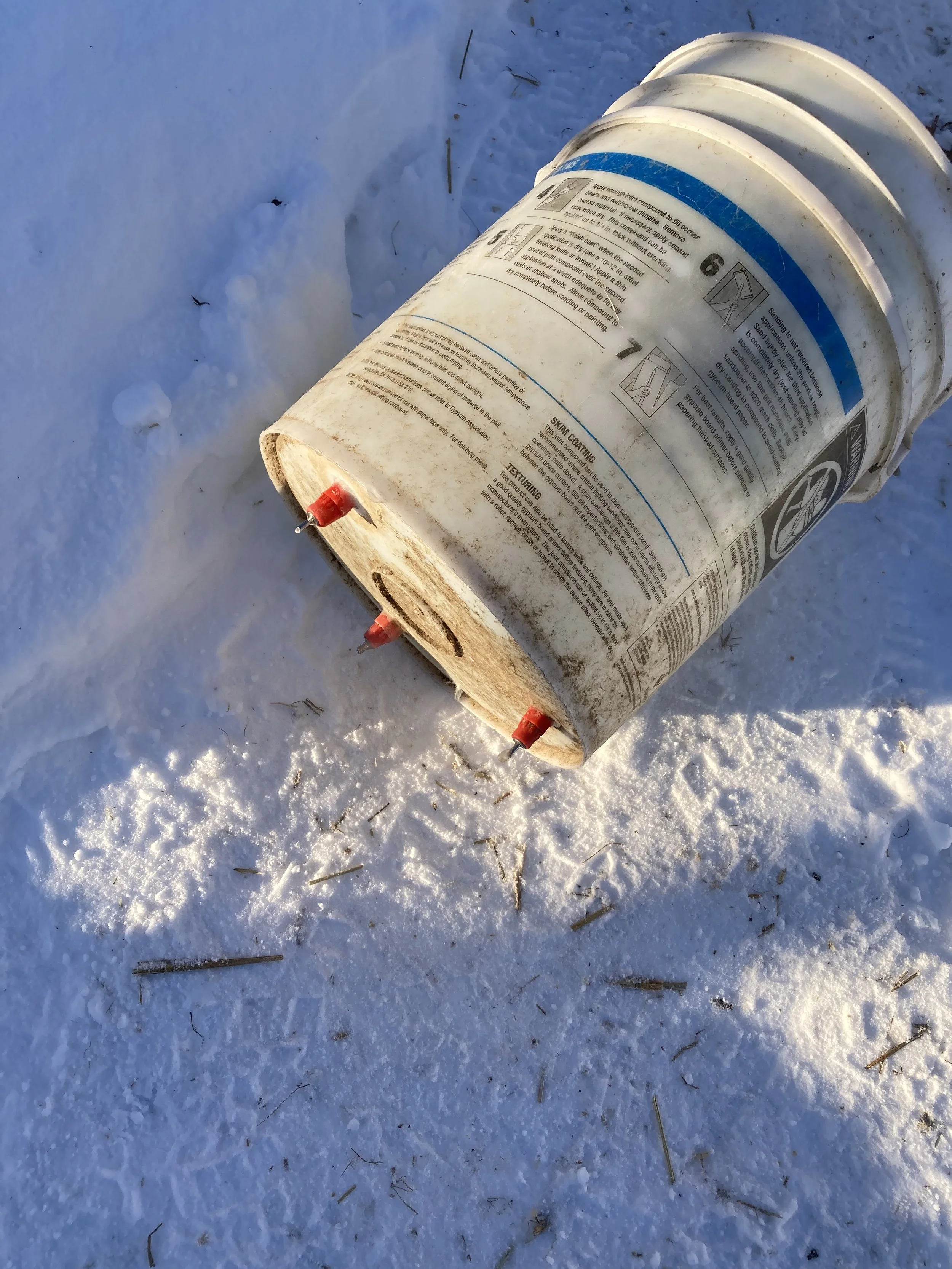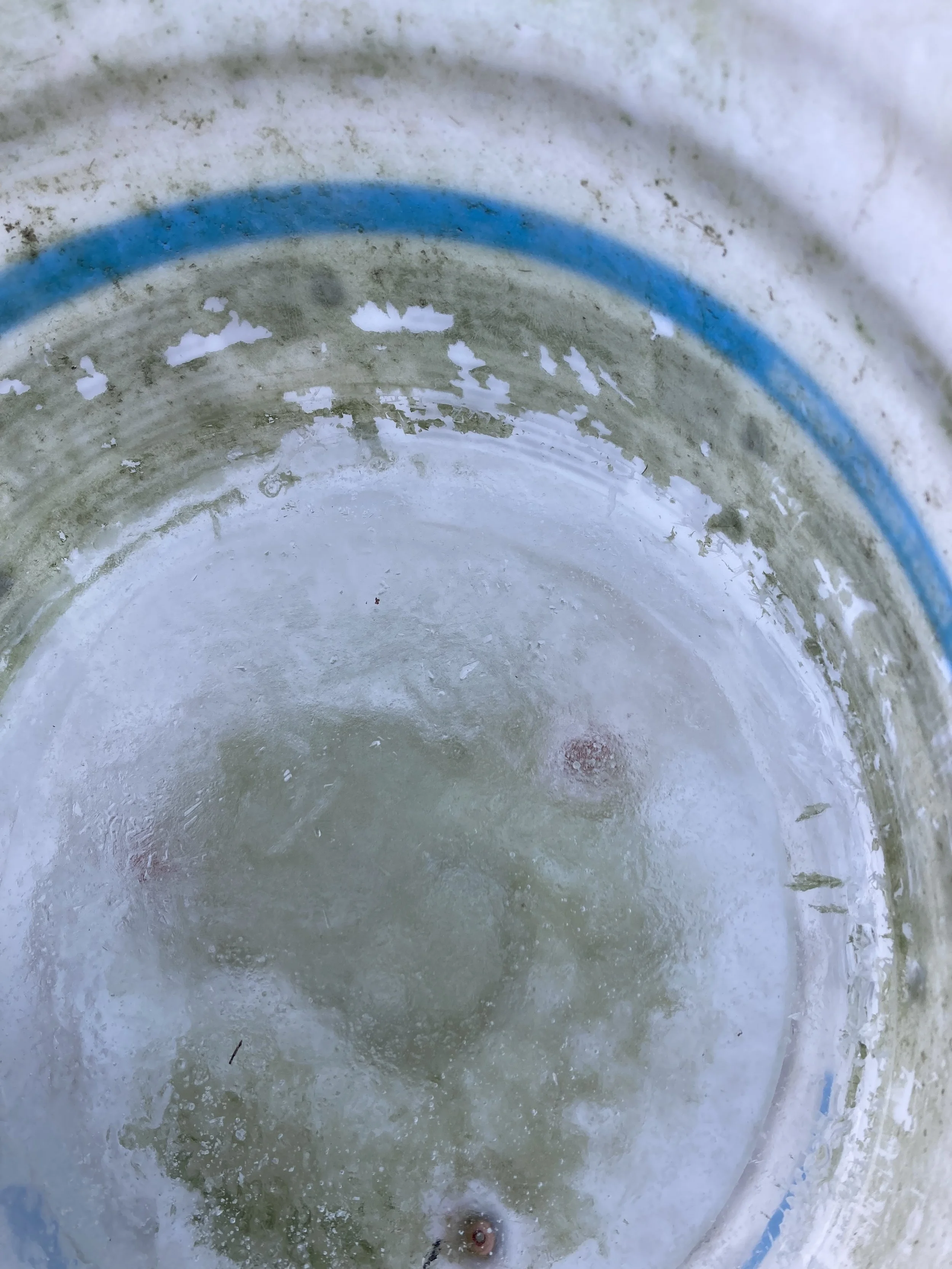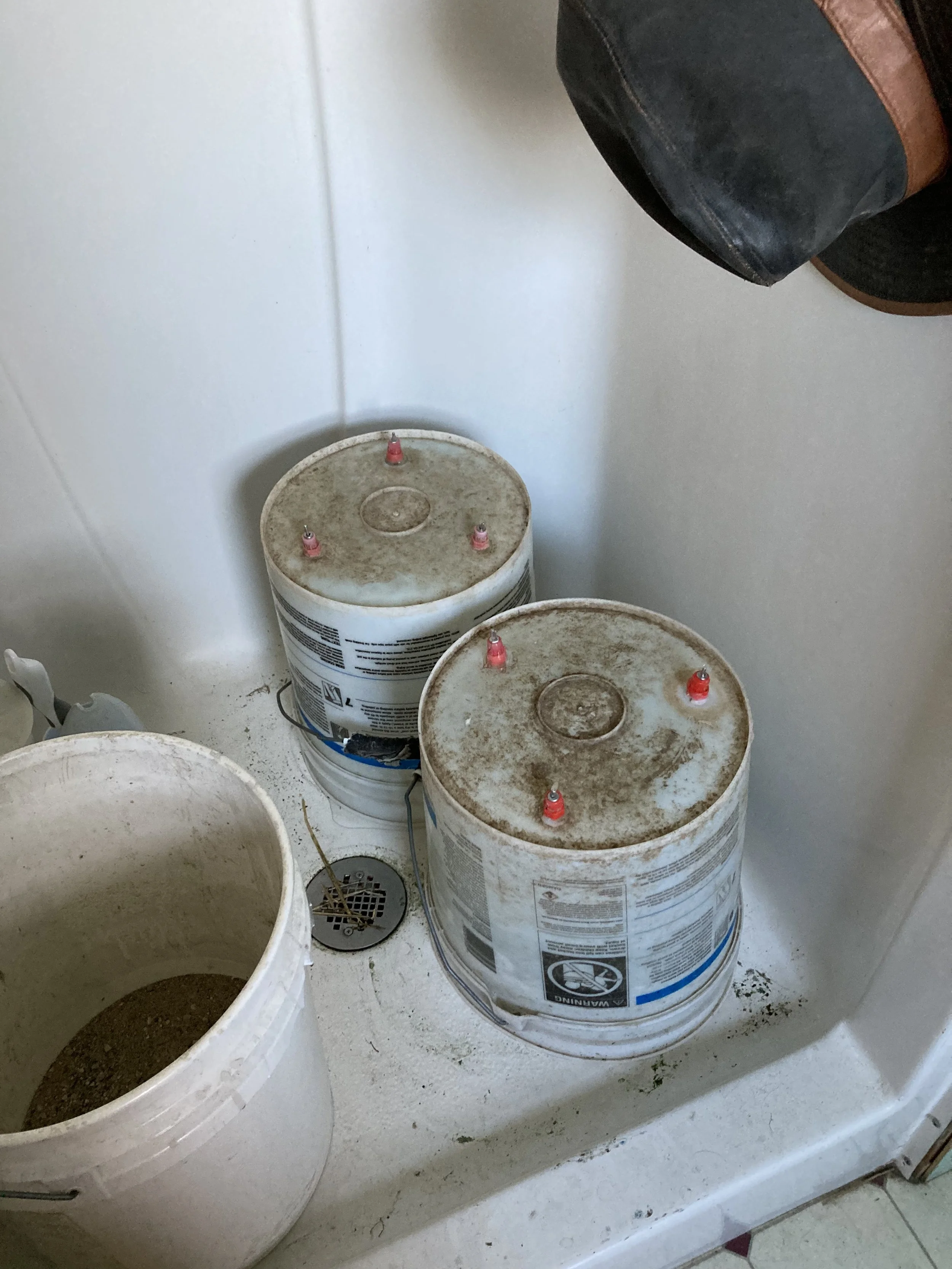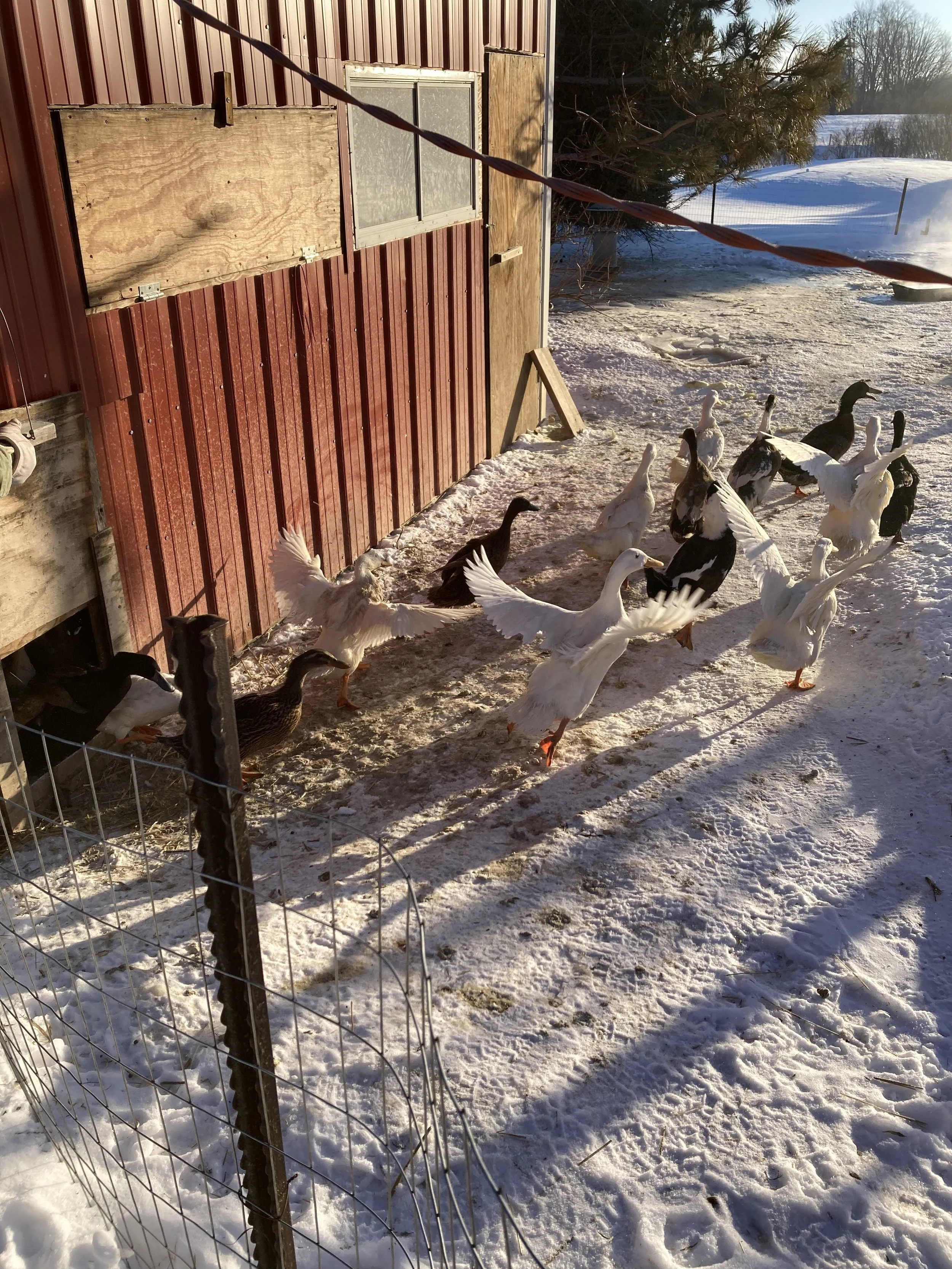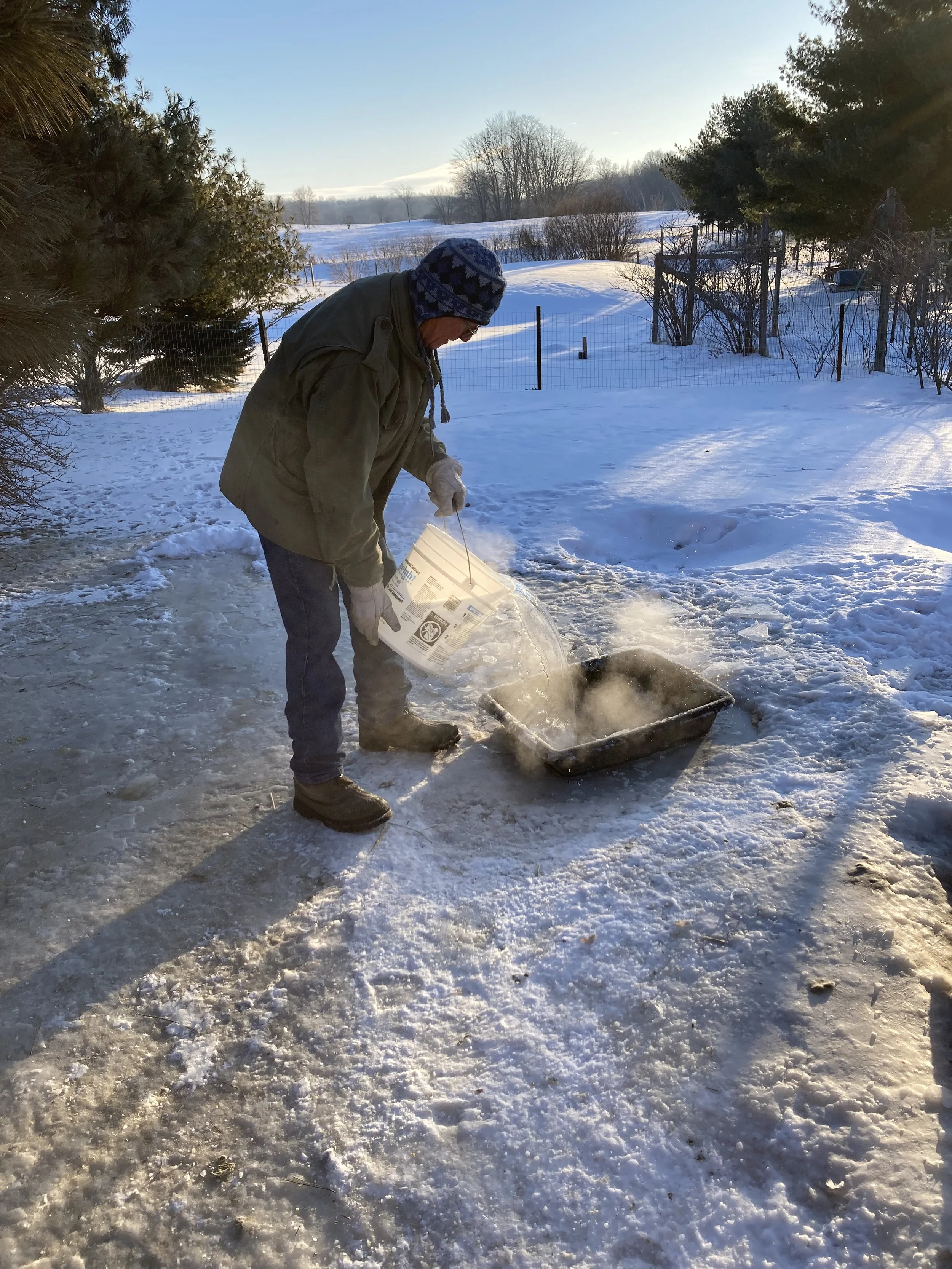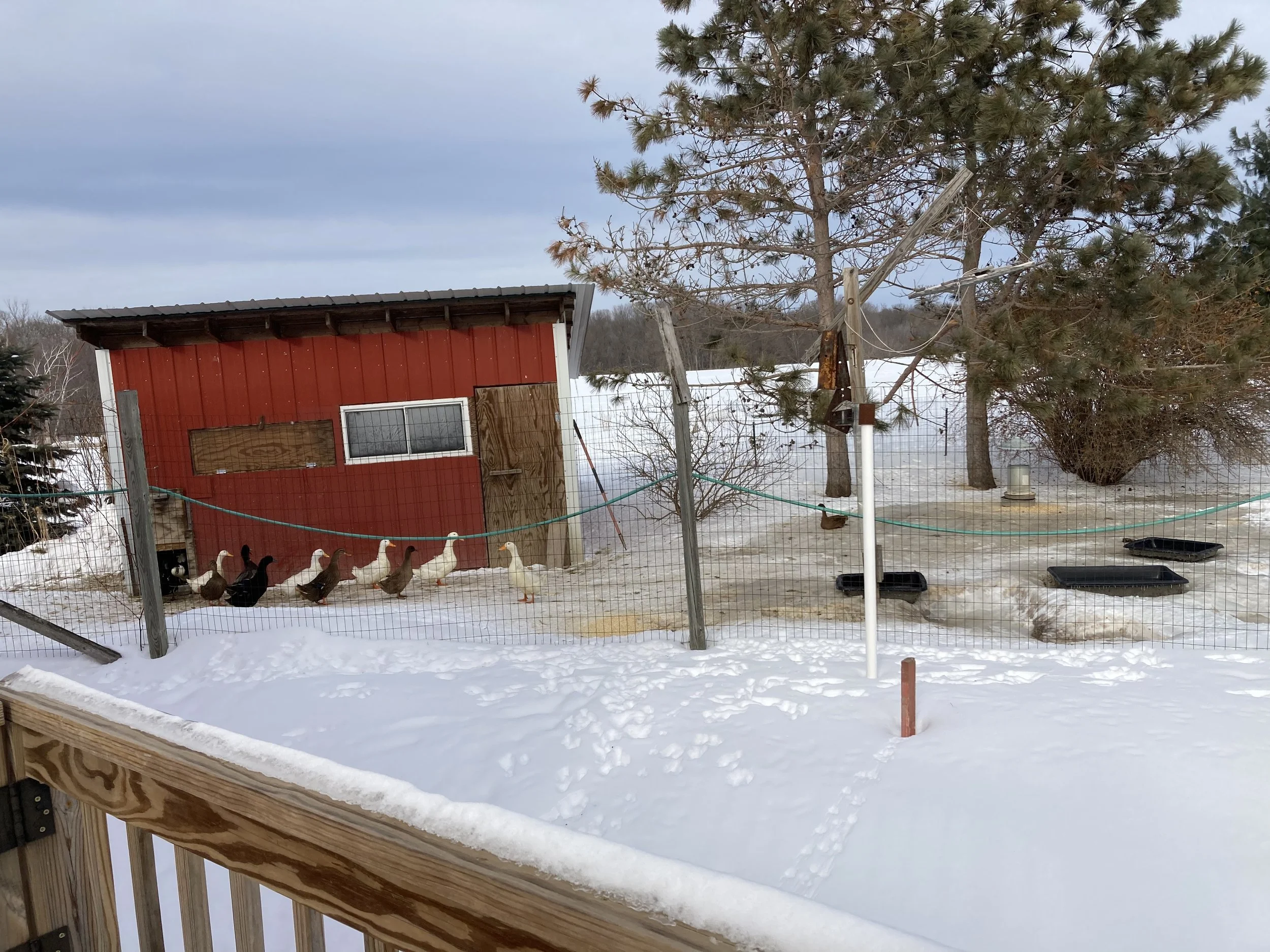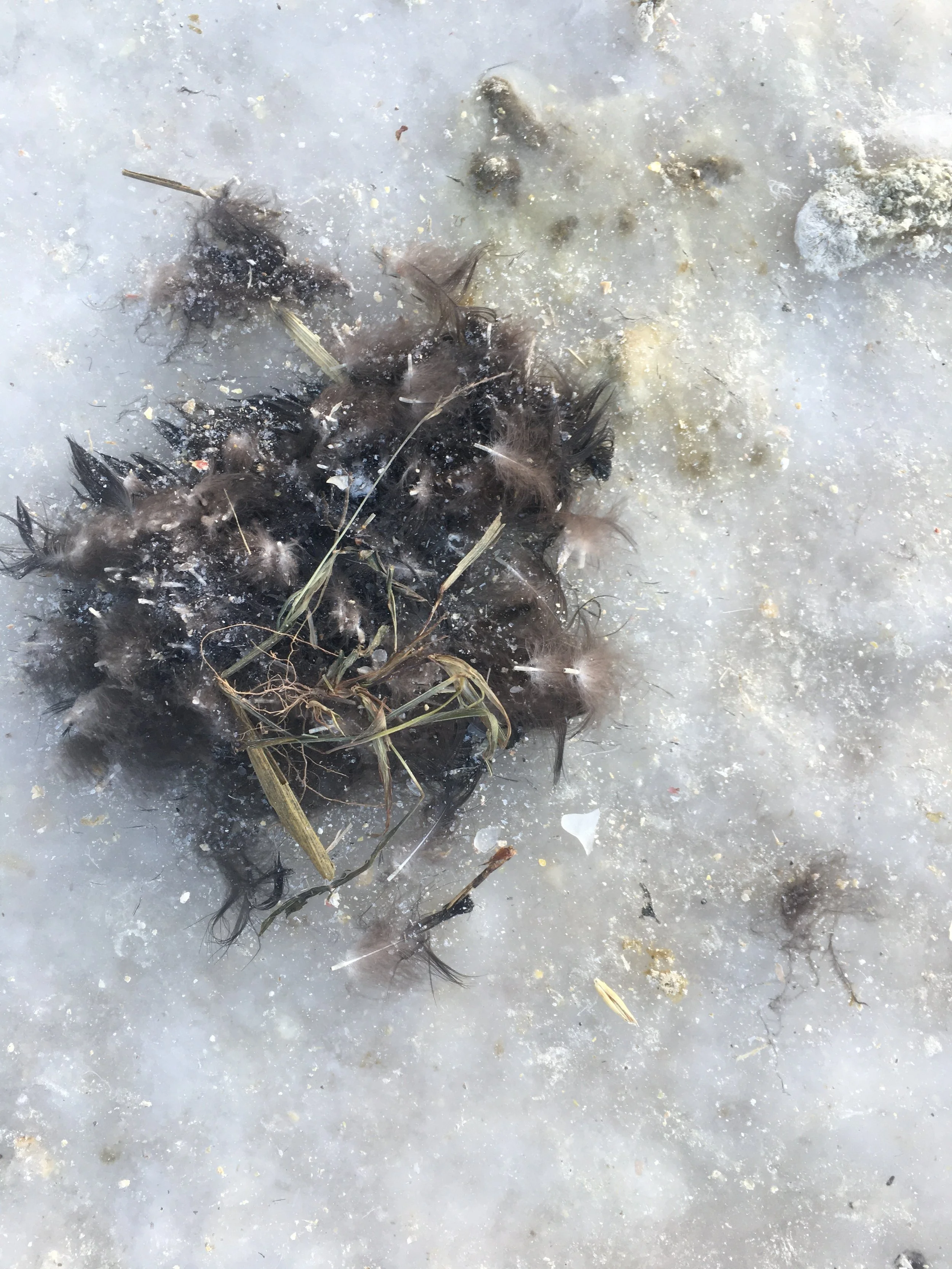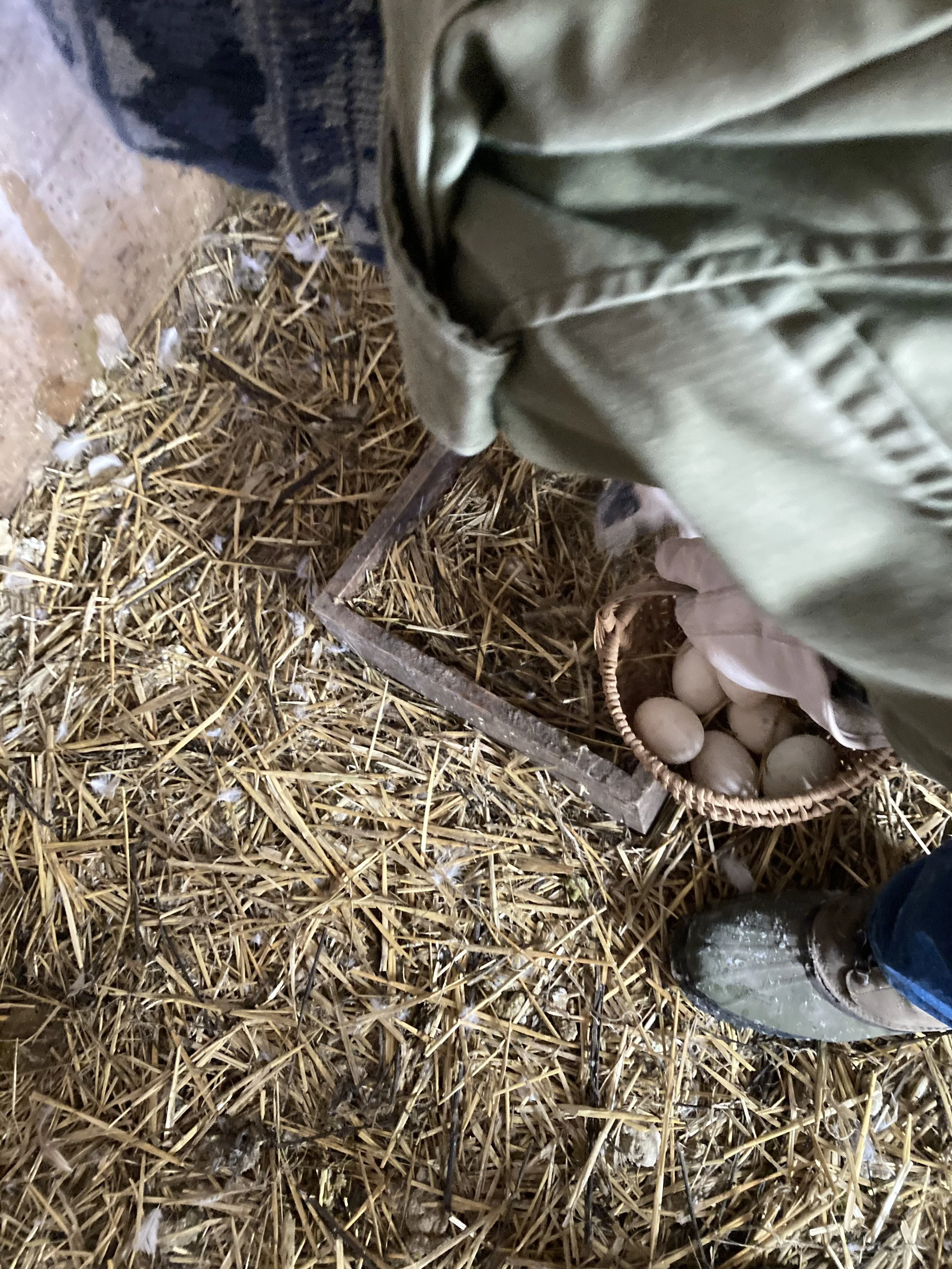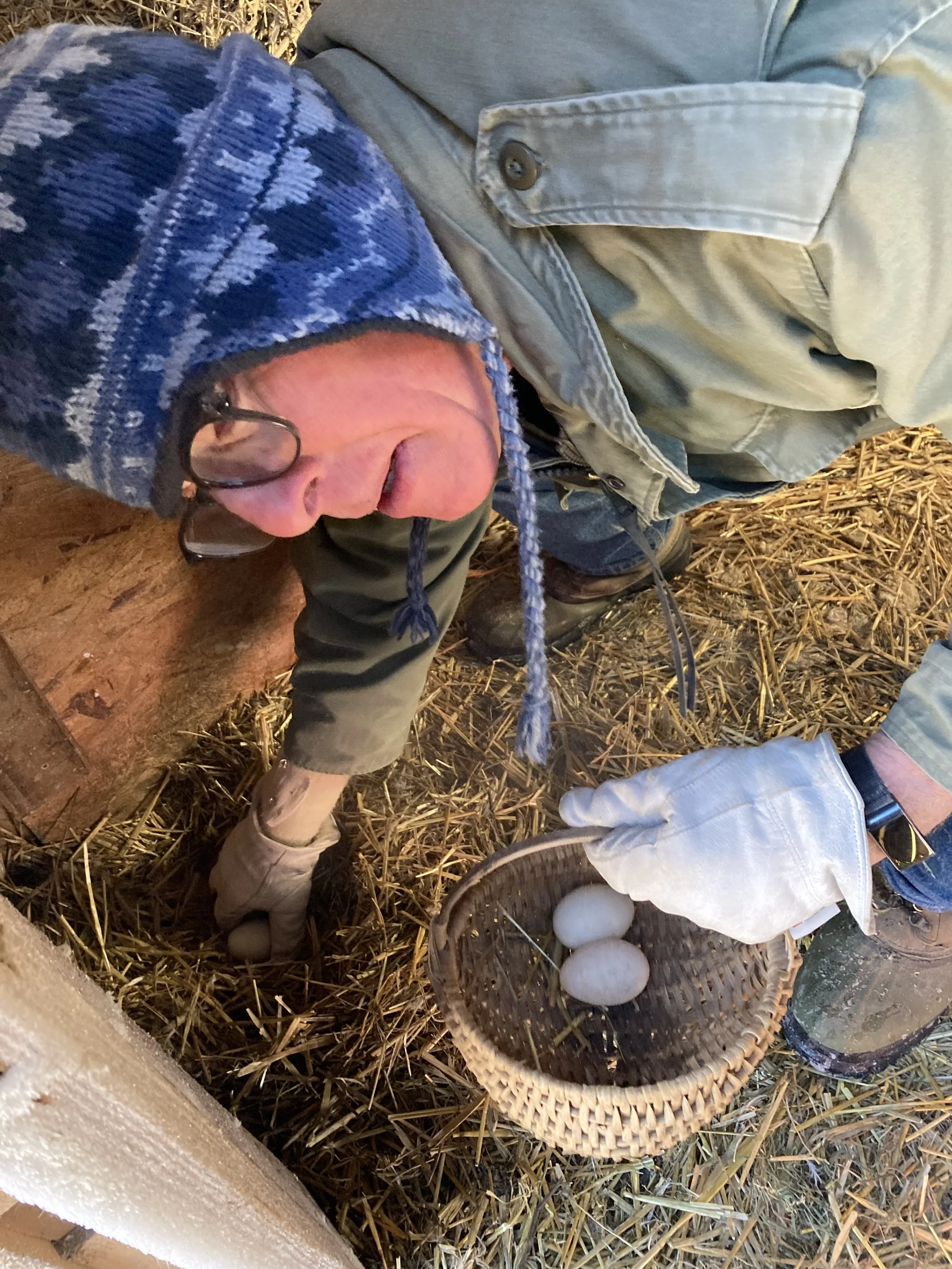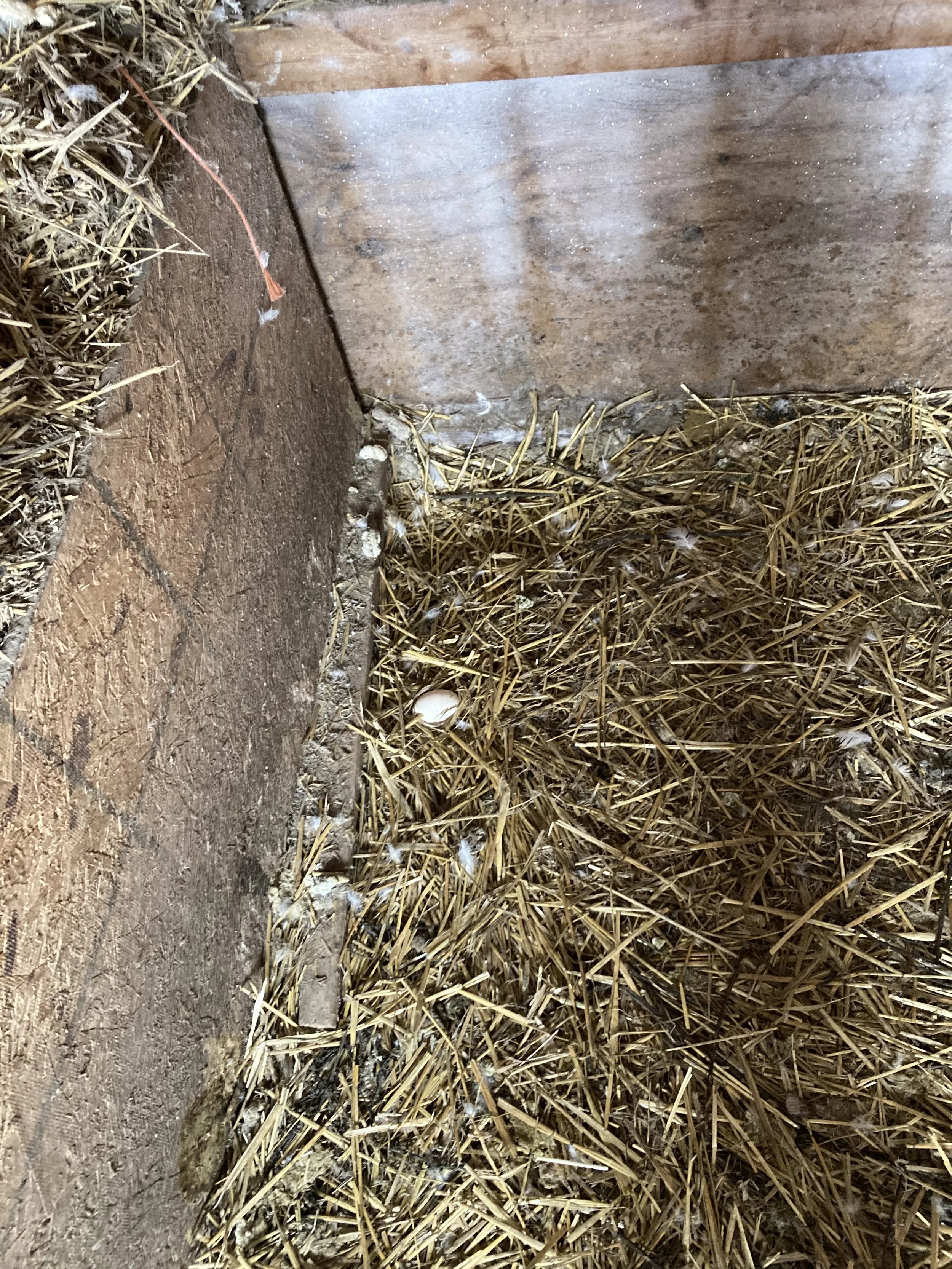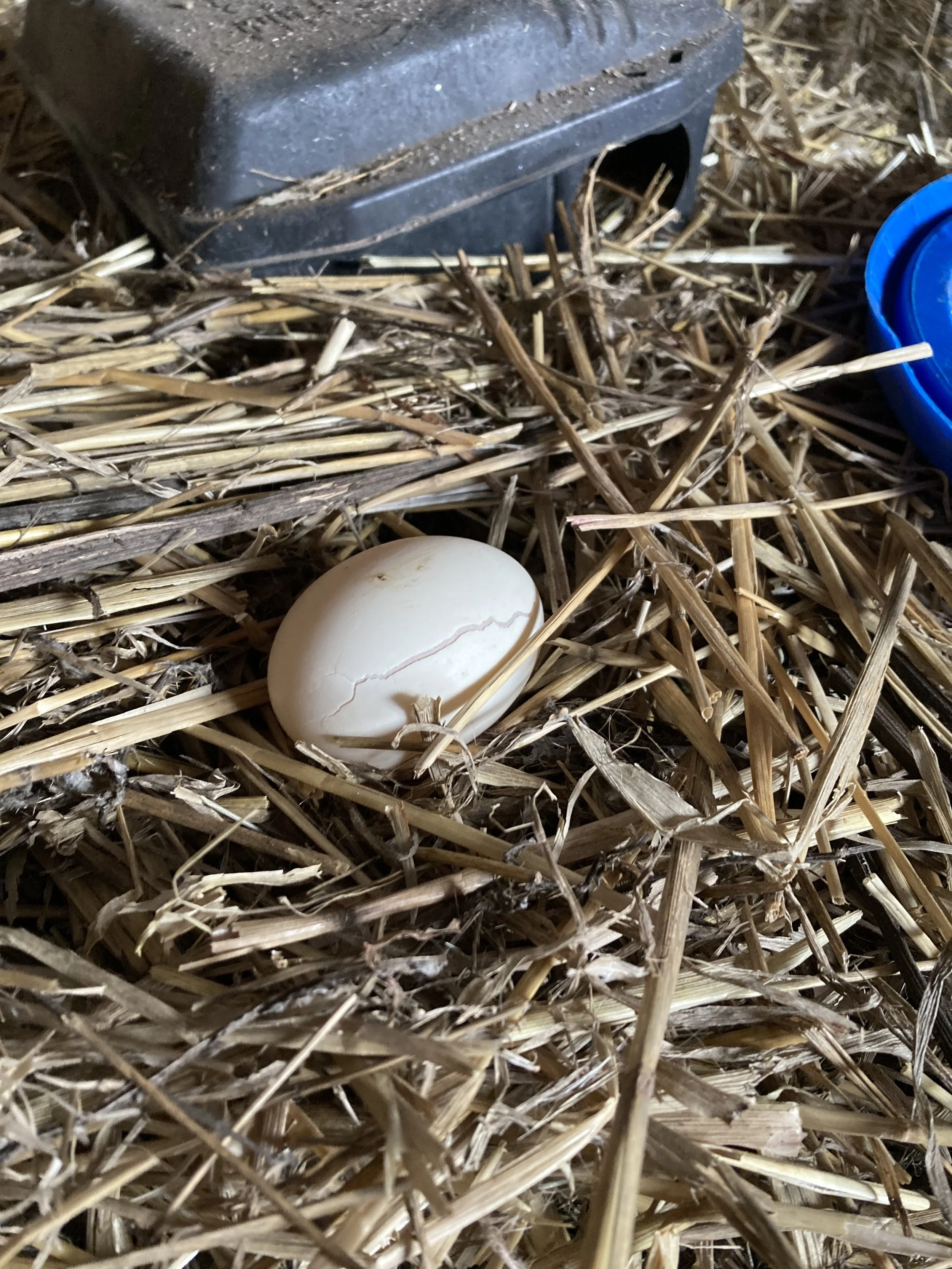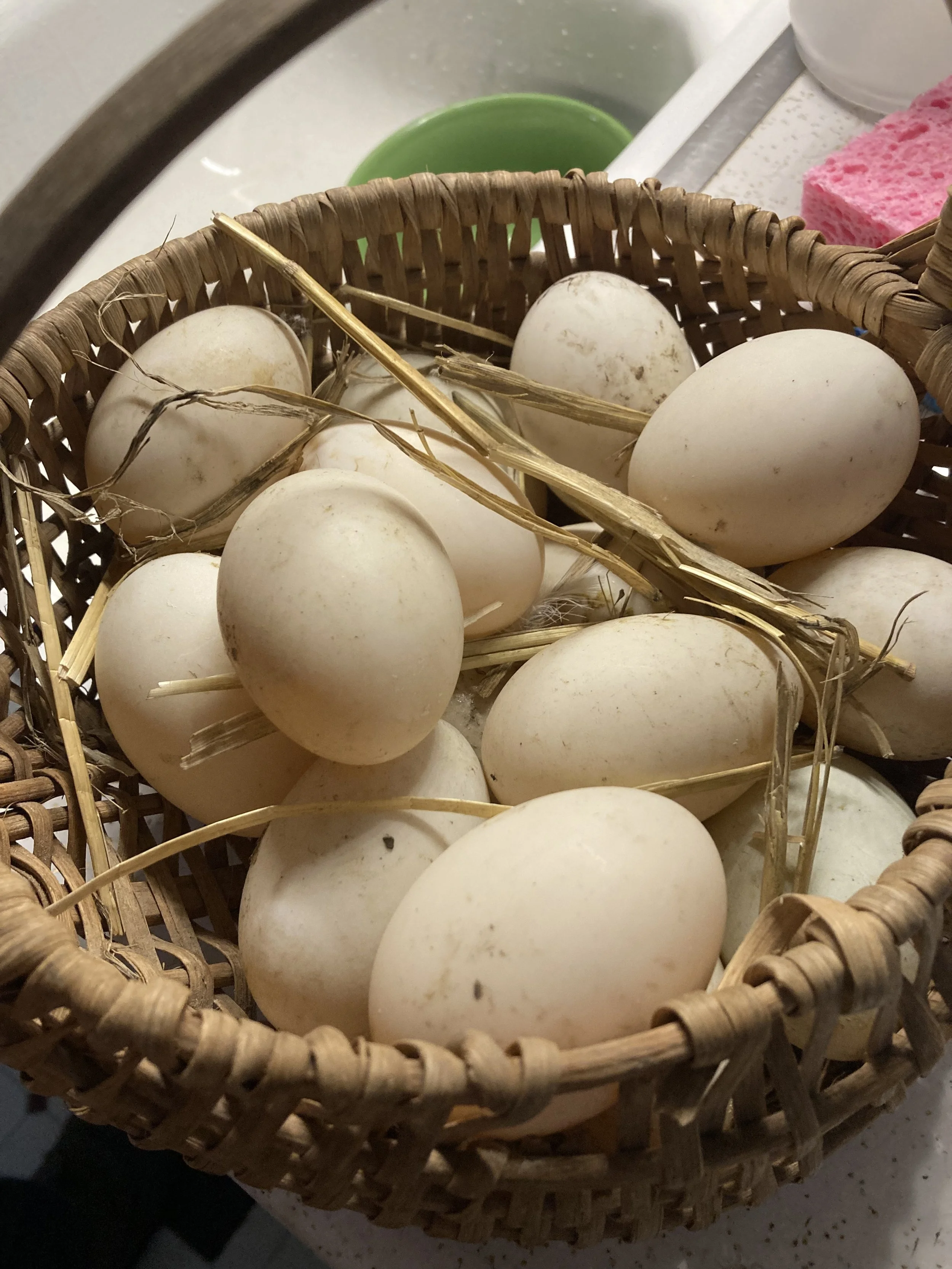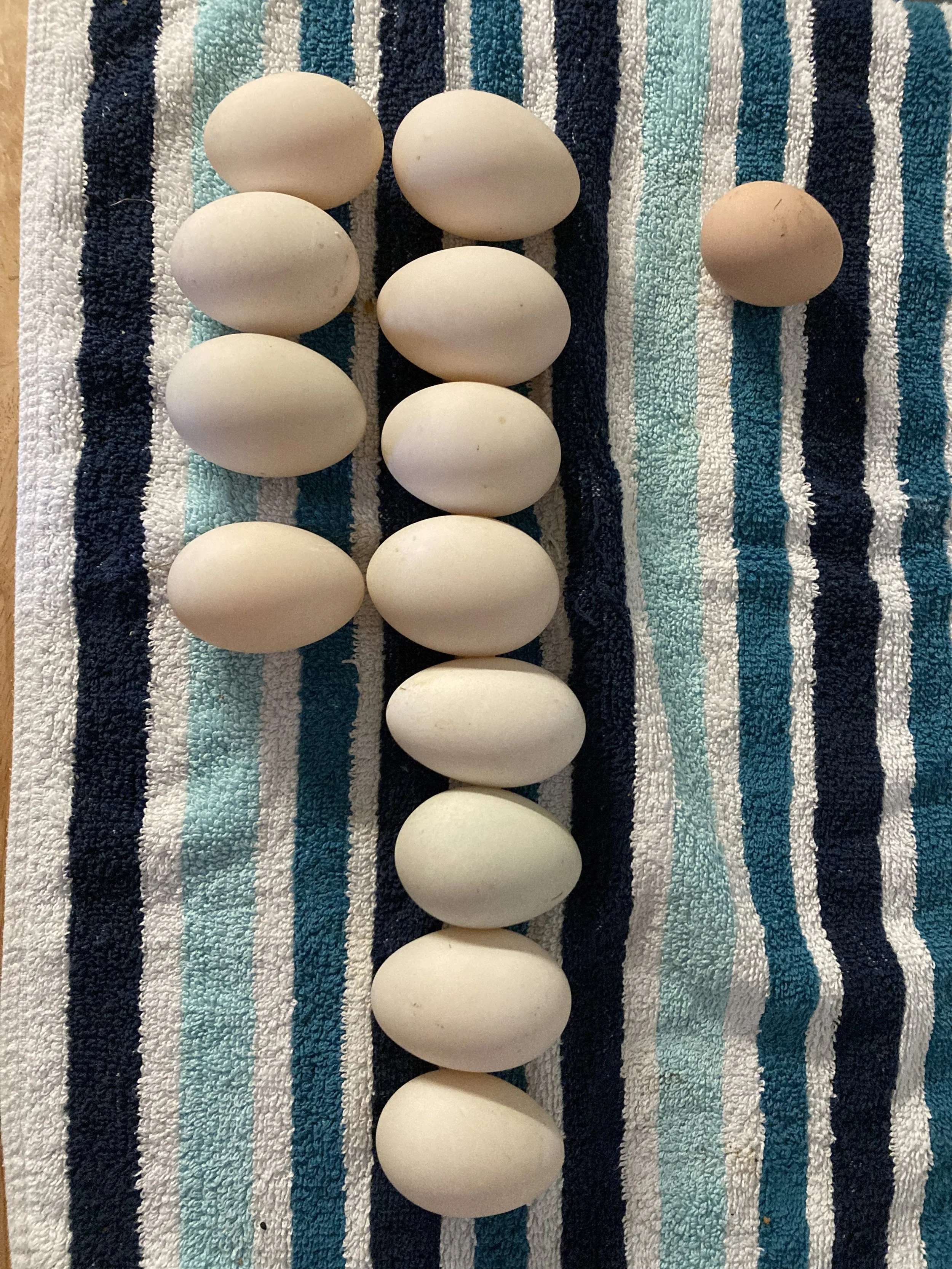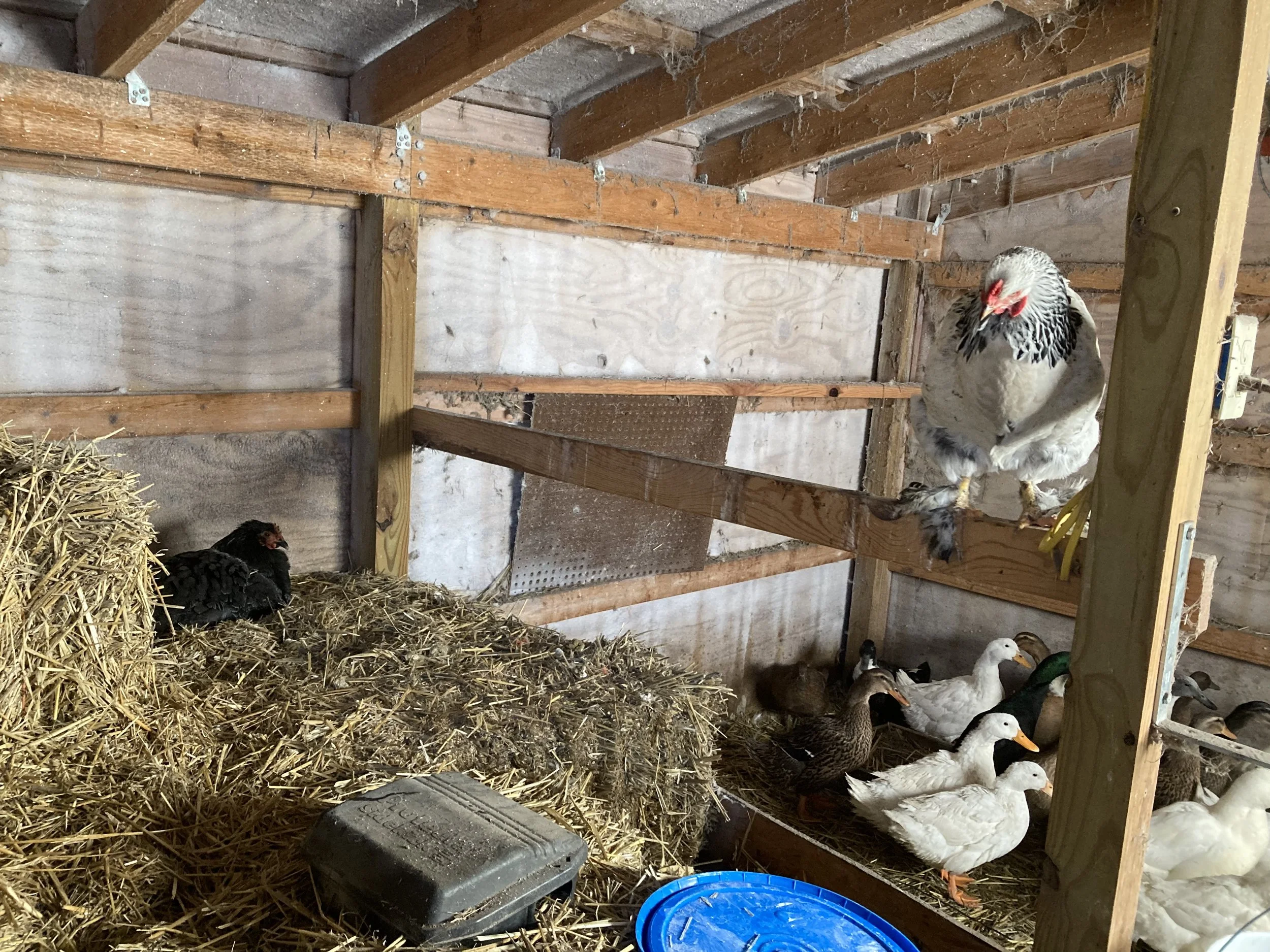Livestock journal: caring for birds at below zero temperatures
We have 26 below this morning. Hopefully the weather will warm from here out. Keeping the birds watered (important for chickens and really important for ducks) has been challenging, for us and for them.
Michael uses about 40 gallons of hot water for the birds every day in winter, most of it for the ducks. We used to cart five gallon buckets from the kitchen sink, down icy stairs and pathways, to the various watering stations. Since the very cold weather set in, he still needs one bucket of hot water from inside.
If you look closely you can see two faucets. The one Michael is using is a hot water tap he installed this fall. The other, which is behind him, is the normal cold water tap. Both have frost free spigots, but the hot water one will still ice up, along with ice in the end of the hose. He needs the initial hot water to defrost the tap. When the temperature hovers around zero, the hot water tap works well without the need for priming. The hose remains in an empty bucket after watering birds because it gets too stiff to bend overnight.
The chickens get inside water and outside water, as do the ducks.
Everyone gets fed outdoors to keep the vermin from invading the coops, where eggs and birds are vulnerable.
The five gallon buckets with watering nipples tend to freeze up over 24 hours when it drops below zero. It can get below freezing outdoors and still maintain liquid in the coops. We tried fish tank heaters for the watering buckets initially, but they are expensive, didn’t deal well with variable water depth and burned out too often. Electrically heated watering devices tend to be designed for horses and other large mammals and are not useful for the birds. This means the water gets changed out daily. Michael rotates the inside water buckets, which defrost in the old shower stall. We will make sure our new space (whenever we get around to it) has a utility sink large enough to accommodate two buckets.
The joyousness of released ducks brightens every day.
Michael fills a number of cement hods for the ducks. It works out to be about a gallon of water per duck a day, summer or winter. Ducks need water deep enough to submerge their heads in order to feed properly. They also need water to wash and preen to keep themselves waterproof and lice free.
Since it’s been really cold, we’ve been watching for scenarios such as this. One duck away from the flock (you can see her at the base of the pine tree).
After bathing, ducks can get stuck on the ice. They will free themselves if you approach them, but can lose feet or die from getting cold if they don’t move soon enough. We have to keep an eye on them in this intensely cold weather.
Ducks lay eggs early in the morning, usually. Michael gathers them after spreading water love, then picks up the few extras when he puts the birds to bed. They have nesting boxes, but will also dig themselves nests in protected corners, except for those bad mothers who will drop eggs anywhere. Both ducks and chickens will share nesting sites.
Eggs left on top of the straw will freeze and break in this type of cold. The yolk of a frozen egg tends to gel, but not always permanently. Michael and I will eat the frozen/cracked eggs on the day gathered. If too damaged (or too many), then Zeke gets a treat.
With the increase in natural light, we are getting more eggs, from about 6 a day at New Years to about 14 now. We have 28 duck hens. We don’t expect 28 eggs a day due to some hens being older. We get 4-6 chicken eggs a day, with 10 hens. We don’t expect more than this, again due to the limited fertility of old hens.
We keep Boyo and Lil Blackie in with the ducks, as they were being pecked to death by the rest of the flock. They produce an egg every now and again. Boyo is our oldest chicken, having come to live with us in 2015. Blackie is our only broody hen. Without exposure to the roosters, we will have to steal eggs from the other coop and sneak them under her if she goes broody again this year. She might not. We’ll see. It is time to start to plan gardens and flocks. Looking out my window, the apricot branches reflect pink where before they were gray. The willow wands shade to yellow ocher beneath the hoarfrost. Dogwood twigs ghost the ground in mauve. “Men forget the old duet, in love with some other spring.” Billy Holiday
We appreciate the men who focus on taking care of all our precious duckies and keep a song in their hearts knowing this spring is gathering energy…even at 26 below.
